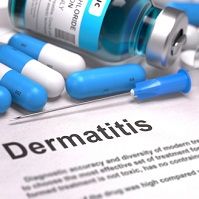Article
Quality of Life Gains Importance in Atopic Dermatitis Studies
Author(s):
An increasing number of studies of treatment effectiveness for atopic dermatitis (AD) are measuring changes in quality of life (QOL) as well as in symptoms.

An increasing number of studies of treatment effectiveness for atopic dermatitis (AD) are measuring changes in quality of life (QOL) as well as in symptoms.
A systematic review of randomized controlled trials (RCTs) of AD treatment was published by Cory Dunnick, M.D., Department of Dermatology, University of Colorado Denver and colleagues in September online in the Journal of the American Academy of Dermatology.
"Given the often concurrent physiologic and psychological burdens of AD, both disease severity and QOL measures are fundamental to patient evaluation and care," Dunnick and colleagues indicate.
Although the investigators are concerned that there are still too few treatment studies considering QOL, and that lack of standardization in the instruments hinders comparison of treatment outcomes between studies, they are encouraged by the recent increase.
The increase in QOL measures in treatment studies is, Dunnick and colleagues comment, "perhaps signifying gradually increased attention to patient emotional well-being".
In comparison to previously reviewed RCTs conducted between 1985 and 2010, Dunnick and colleagues found that the prevalence of QOL measures in trials conducted between 2010 and 2015 had approximately doubled. Approximately 18 percent of the earlier trials assessed QOL, with an increasing trend during that time, to approximately 33 percent of those conducted more recently.
The reviewers found 28 QOL measures used in 45 of the 135 RCTs conducted between 2010 and 2015. The Dermatology Life Quality Index (DLQI) was the most commonly used instrument, used in 20 trials. The Infants' Dermatology Quality of Life Index (IDQOL) followed in frequency, used in 8 trials. Twenty-one of the identified QOL instruments were used in only 1 trial.
EASI
The most frequently used measure of symptom severity in the trials of both time periods was the Scoring Atopic Dermatitis (SCORAD) index. In the earlier period, this was followed by the Eczema Area and Severity Index (); which fell to fourth in the recent period, after the visual analogue scale (VAS) for pruritus and the Investigator's Global Assessment (IGA) tool.
The reviewers call for more to be done to assess QOL, and to do so in a consistent manner. "Despite the documented burden of AD, the field continues to lack frequent reporting of QOL outcomes," they indicate. "Perhaps the most disconcerting trend we found in the use of QOL scales was that 75 percent of identified instruments were used only once."
Further Coverage:
Trial Shows Improved QOL with AD Treatment
How Big a Problem is Atopic Dermatitis, NEA AsksEczema Not Just Skin Deep





